Archive
30 September 2020
Lucas van Vliet appointed Dean of the Faculty of Electrical Engineering, Mathematics and Computer Science (EEMCS)

10 September 2020
Two new arrays complete detector for GUSTO mission
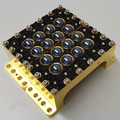
GUSTO is a balloon telescope that will simultaneously map three types of material in the gas and dust between stars. SRON and TU Delft develop all three detector arrays for this NASA mission. The final two flight arrays have now passed their pre-shipment review and are shipped to the University of Arizona for integration into the balloon observatory. Together with the earlier shipped array for 4.7 terahertz, the 1.4 and 1.9 terahertz arrays complete GUSTO's flight detector.
10 September 2020
50.000 euro NWO grant for four researchers of Applied Sciences
The Board of NWO Domain Science has awarded four researchers of Applied Sciences in the NWO Open Competition Domain Science – XS. Xiaozhou Ma, Dimphna Meijer, Caroline Paul and Toeno van der Sall will all receive 50.000 euros for their various projects.
07 September 2020
Unique coherent Soft X-Ray source arrives in Delft
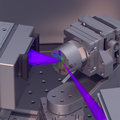
A unique Soft X-Ray source was recently installed at the Optics Research Group of the department of Imaging Physics. This source will play a key role within the LINX-consortium, which TU Delft leads. The aim of this consortium is to generate new techniques to image extremely small features in 3D, for example on next generation computer chips.
03 September 2020
ERC Starting Grant for TU Delft researchers
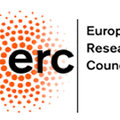
ERC has awarded its 2020 Starting Grants to early-career researchers. Two of them are scientists from TU Delft. This European funding will help individual scientists and scholars to build their own teams and conduct pioneering research.
27 August 2020
Researchers take important step towards new generation of batteries

Delft University of Technology researchers, in collaboration with researchers from Tsinghua University, have taken an important step towards a new type of Li-ion battery, which can be found in our smartphones, laptops and electric cars, among other things. For the first time, they succeeded in making an electrolyte that goes well with an anode made of lithium metal. Lithium metal is the holy grail for anodes. In theory, a two to three times higher energy density can be achieved with this material compared to current batteries.
27 August 2020
Two bits in one atom
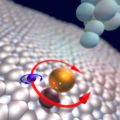
Researchers at Delft University of Technology have succeeded in independently manipulating two different types of magnetism within a single atom. The results are relevant for the development of extremely small forms of data storage. In time, this new discovery could make it possible to store two bits of information in one atom.
16 July 2020
Charting the way to minimal cells
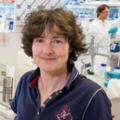
Ironically, the closer we get to building a living cell, the less we are able to understand it. During the three-day virtual workshop “Reconstituting biology - charting the way to minimal cells”, cell-building researchers agreed this complexity is what makes cells so interesting.
16 July 2020
New: Online TU Delft summer course Pre-University Physics (start 3 August)
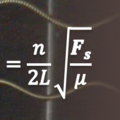
Never before have technology and innovation been so central to our society. Physics allows us to understand both simple everyday phenomena and the latest technologies: from guitar music to the 5G network. Physics is therefore indispensable for many educational programmes and other disciplines.
25 June 2020
Researchers create a mechanically-tunable graphene quantum dot
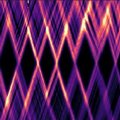
The ability to precisely manipulate individual charge carriers is a cornerstone for single-electron transistors and for electronic devices of the future, including solid-state quantum bits (qubits). Quantum dots (QDs) are at the heart of these devices. In a recent Nano Letters paper, researchers at Delft University of Technology (TU Delft) present the first mechanically-tunable monolayer graphene QD whose electronic properties can be modified by in-plane nanometer displacements.